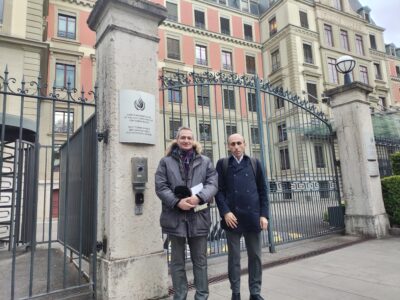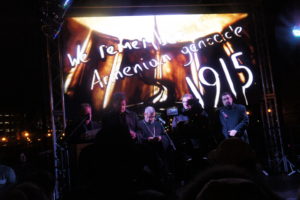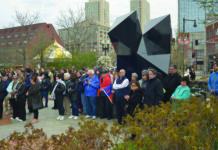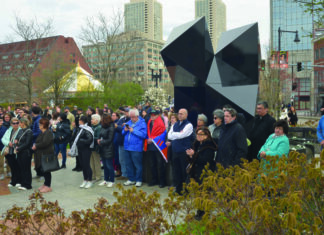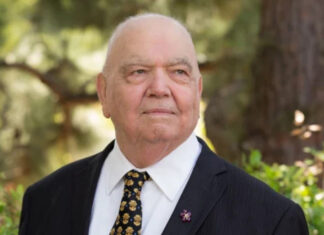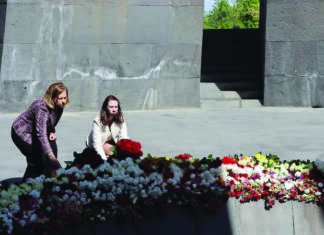Mirror-Spectator Staff
BOSTON – The afternoon events in Boston were followed by a vigil in the Armenian Heritage Park, with a wide variety of speakers alternating with musical performances, prayer by the Armenian clergy, and multimedia displays. A crowd of approximately 2,000 stood in the cold for several hours beginning at 7:30 p.m. People of all ages attended, but the presence of Armenian youth in great numbers was notable. There were even some representatives of Bostonbul, a supportive Turkish group from Boston, in the audience.
One of the most moving parts of the evening was the talk of 1994 Rwandan Genocide survivor Marie Carine Boggis. She spoke of the fear she lived with as a child, being taunted by other children and having the knowledge that people raped, pillaged and killed. She lost her parents, three sisters, one brother, her grandmother and countless other relatives in the genocide, and every time she thinks about it, she goes back to the eight-year-old she was at that time. She thought at first that perhaps genocide was taking place throughout the world, which was why no one stepped in to stop it. She was shocked later to find out this was not true.
She said, “I cannot emphasize enough how much we need to make sure that no kids see what I saw at that age … We have to be vocal about it, we have to make people uncomfortable that this is happening while so many people are watching and standing by.” Boggis emphasized that genocide can happen to anyone: “How many more times does it have to happen for us to really take it seriously?”
Boggis was pleased with the Armenian commemoration. She said, “I’m so highly impressed that there are so many people here. The fact that it happened 100 years ago, and you are all here, it speaks volumes. It gives me hope that 100 years from now, when I am no longer alive, my grandchildren will carry this on.”
